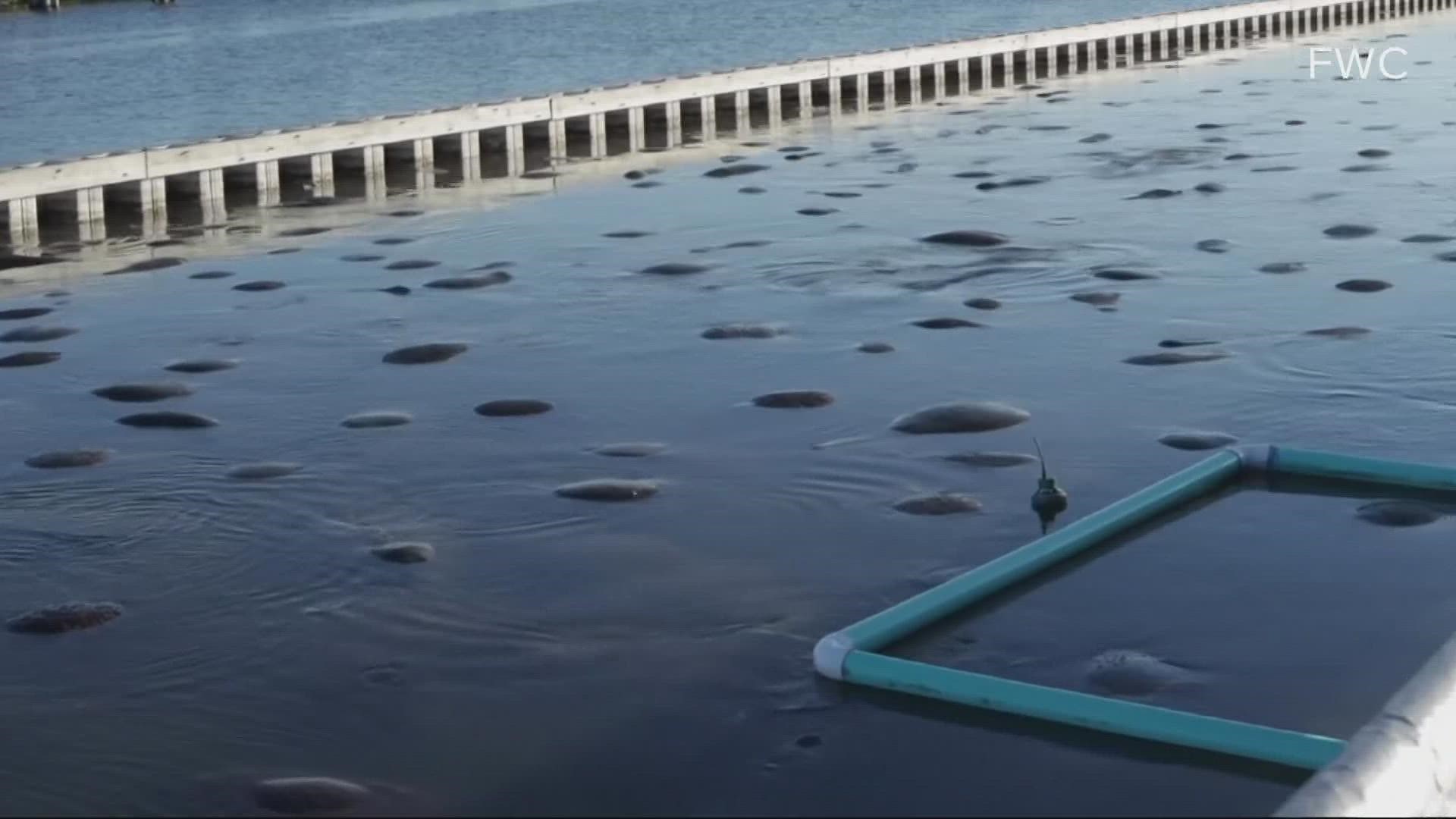JACKSONVILLE, Fla — A trial to help save Florida's manatees is now restarting for the second year.
A supplemental feeding program began last year after more than 1100 manatees died in what's been declared an Unusual Mortality Event. Now team members with the Florida Fish and Wildlife Conservation Commission's Joint Unified Command say they're prepared to feed the manatees romaine lettuce at the Cape Canaveral Florida Power and Light power plant again.
Thursday was the day Ron Mezich, provisioning branch chief for the Joint Unified Command, said the team would be ready to restart the supplemental feeding. They have not begun yet because they say it depends on the weather and manatee behavior, which they are monitoring.
The Joint Unified Command is ramping up resources for the winter, which they call "critical." The team warns colder weather means boaters need to be more vigilant as manatees move to find warmer water. More than 70 manatees have been killed in boat collisions this year, according to FWC data. On Wednesday a seasonal no-entry zone for boats in an area of Brevard County was approved.
About 750 manatees have died this year from different causes, according to the FWC. That's about 350 fewer than all of last year.
Seagrass is a manatee's main food source, but pollution from fertilizers and septic tanks are feeding the growth of toxic algae, blocking sunlight and preventing seagrass from growing. That is where the romaine lettuce as a supplement to the manatees' diet comes in.
"Most importantly, we've got to get water quality to a place that naturally the seagrass can recover," said Patrick Rose, executive director of Save the Manatee Club. "We're working really hard on lessening the amount of nutrients going into the system, looking at planting seagrasses where it would be appropriate."
Save the Manatee Club is one of the organizations petitioning the U.S. Fish and Wildlife Service to reclassify West Indian manatees from "threatened" to "endangered."
"As manatees were down listed, so were the number of staffing and fundings that support the recovery programs, they were lessened," Rose said. "In order to get the full recovery efforts going the way they need to be, it does need to be relisted as an endangered species, which will help that funding, staffing and other things that need to happen in order to fully recover the species."
The Joint Unified Command has been holding media calls with updates on the condition of the manatees. Mezich said the following on a November call.
"We don't view this as an extinction event," he said.
Rose says the supplemental feeding is not a long-term solution.
"If we even do the best job that we can do, it's still going to be a slow recovery," Rose said.
He says if the manatee rescue teams did not step up the way they have this past year, the prognosis for Florida's manatees could have been much worse.
The Joint Unified Command team says critical care space is still a concern. At Jacksonville Zoo, the Manatee Critical Care Center is being redone and will be able to care for three times the number they can now.

